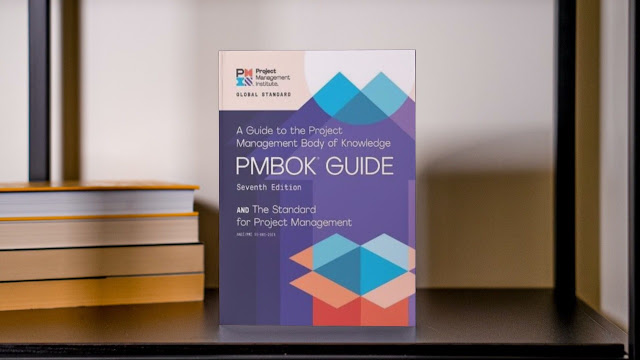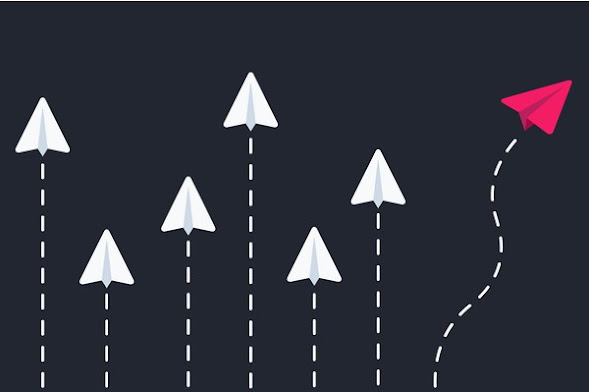Around three years ago, I decided to do the Project Management Professional (PMP) certification. As a first step, I ordered the PMP Exam Prep guide by Rita Mulcahy. I felt overwhelmed when I received the big fat book comprising over 800 pages, considering I’m a middle-aged family man with multiple responsibilities and a demanding job to take care of. I read through some pages, lost steam, and shelved the book. Hence, I temporarily paused the PMP plans and opted for the easier goal of taking the Google Project Management Professional certification course on Coursera to gain some basic knowledge on Project Management. The informative course built a strong foundation for my PMP preparation.
Due to my constantly oscillating nature, I could not pursue it single-mindedly, and my efforts were also haphazard. As my career almost came to a standstill with no growth and the content writing job that I do was impacted by AI more than any other work, I strongly felt the need to transition to some other career that has better prospects. Finally, around six months ago, I decided to go for it single-mindedly.
With that intention, I retrieved Rita’s PMP Prep Guide
from the shelf and started using it. I even registered for a PMP prep course to
get the 35 mandatory PDU contact hours. The trainer gave an overview of the
content to be explored for the PMP exam (PMP Exam Content Outline), along with
some tips on answering the test questions. They even gave me access to a mock
simulator, where I could do some mock tests, which enabled me to familiarize
myself with the exam.
After doing all the tests on the mock simulator, I paid the exam fee, which was a hefty amount (at least for me). The hefty fee made me apprehensive that if I failed, I would lose the amount, and to retake the exam, I would have to cough up another hefty amount. These fears made me decide that failure is not an option. With that idea in mind, I intensified my preparation, spending my evenings and weekends on the exam preparation with intense focus.
However, I always felt that whatever I learned in the
training course was highly insufficient and there was a lot more to learn. Hence,
I kept exploring multiple books and resources to accumulate more knowledge.
While doing mock tests, I invariably faced the problem of managing time. The
long situational questions would always puzzle me. And most importantly, I was
clueless about how much preparation was enough to pass the exam. However, at
some point of time, I felt that no amount of preparation is enough for this exam
and the best thing to do is to schedule the exam and take it. So, I went ahead
and scheduled the exam. After I scheduled the exam, I further intensified my
preparation and started doing more mock tests available on Udemy.
Throughout my preparation, I received great support
from my family members, especially from my wife and children. For some months,
I even competed with my children, spending long hours reading PMP prep books. I
even took a lot of notes, filling an entire notebook. It is a welcome break
from a paperless, penless life that I got used to.
On Exam Day:
On the exam day, I reached the nearby Pearson center
at 7.30 AM and completed the required formalities before I got admitted into
the test room.
After a thorough identity verification and pat-down
search, I was escorted to the testing cubicle. After a short onscreen tutorial
on how to do the exam, I started the test, and the countdown started showing up
at the top right corner. The first five questions made me feel jittery, and for
a while, my brain turned foggy. Unable to comprehend the long questions fully,
I marked them for review and went ahead. I felt the first sixty questions very
difficult, and for a moment, I was frozen into inaction. Negative thoughts
laden with potential failure started hitting my mind hard. But I somehow
regained my confidence to resume my efforts and kept making slow yet steady
progress. I took almost 90 minutes to complete my first sixty questions and
took my first break to regain my calm and composure and rehydrate myself.
Back from the first break, I resumed my efforts. This
time, I felt that I was better and into a steady groove. I still felt the
complexity of the questions and kept answering them at a slow pace with the
clock ticking away. I was apprehensive of using up all the time with the
prospect of leaving many questions unanswered. That would be a sure way
for failure and must be avoided. With that idea in mind, I changed my strategy.
I stopped reading the entire question and all the answer choices and started
looking for the keywords to try to make out the question from the perspective
of the PMI mindset. My familiarity with the PMI mindset came in handy and
enabled me to read questions at a faster pace and comprehend them in a better
way. My new strategy paid off, and my speed picked up. I managed to answer the
second sixty questions in an hour and availed my second and final break.
Back from the second break, things were far easier and
smoother. I had only an hour left to finish the last sixty questions and kept
pace accordingly. My new strategy of looking for keywords and employing the PMI
mindset to answer questions made things easier for me. I managed to answer all
the questions within the stipulated time and submitted the test to heave a sigh
of relief.
After a short survey, I was escorted out of the
testing room, and at the reception I was handed over the provisional report
card, which stated that I passed the exam. I was on cloud nine and exited the
test center with joy.
My Tips for PMP
Aspirants:
Finally, here are some tips that I want to share with
the PMP aspirants:
The PMP certification exam is not easy (at least I
felt so). Hence it required a good amount of effort on your part.
Prepare well for the exam by using all the available
resources including books, YouTube videos, mock simulators, and even mentors,
if you have one.
I read the below-mentioned books as part of my preparation.
- PMP Exam Prep by Rita Mulcahy
- Head First PMP by Jennifer Greene
- PMBOK Guide 7th Edition by the PMI
- Agile Practice Guide from the PMI
- Scrum: The Art of Doing Twice the Work in Half the Time by Jeff Sutherland
Master the Project Management Institute (PMI) mindset
Use the elimination technique to narrow in on the best
answer from the given choices
Do as many mock tests to familiarize yourself with
various types of questions and the test pattern. It also helps you master
effective time management.
Please don’t resort to memorizing things as it will
not help you. Stay focused and bank on your reasoning and cognition. Mastering
the PMI mindset will make your task easier.
No one knows the percentage of marks you must score to
pass the exam. Hence every question is important and try hard to get as many
questions correct as possible.
Finally, I conclude by saying passing the PMP exam is
neither easy nor is it too difficult. The only things that matter is how much
effort you put in and how focused you are.
If you are a PMP aspirant and planning to take your
certification exam, I wish you all the best.




